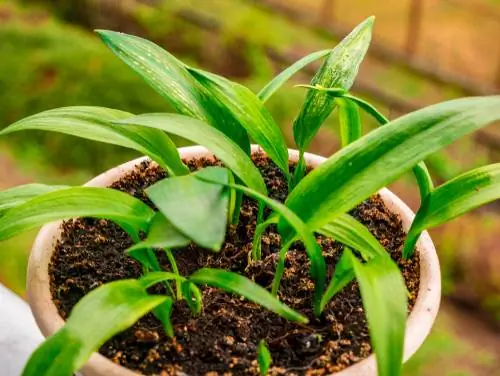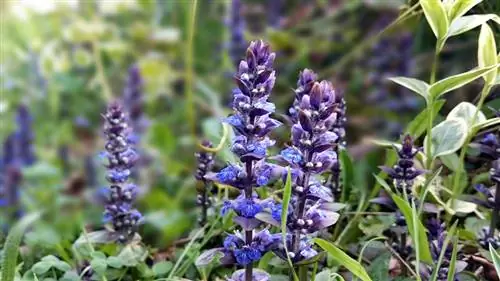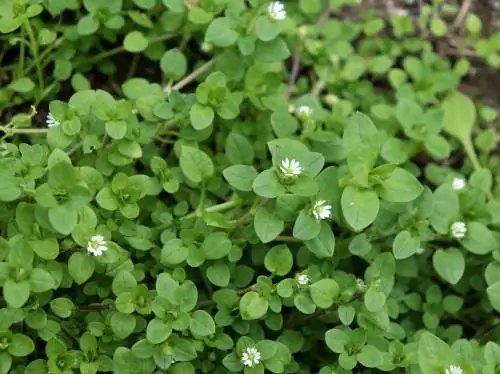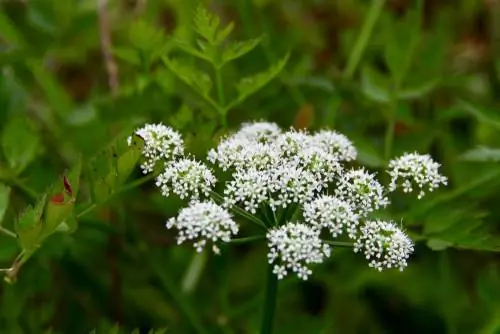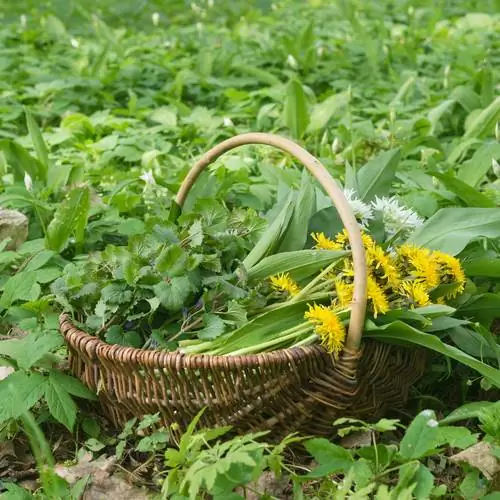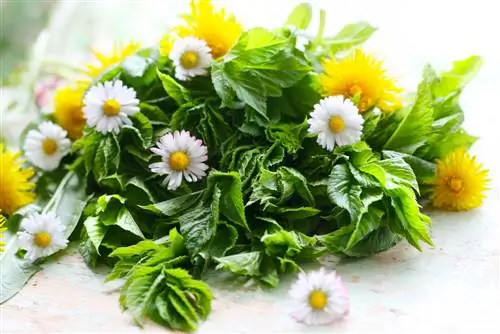- Author admin leonars@hobbygardeners.com.
- Public 2023-12-16 16:46.
- Last modified 2025-01-23 11:21.
Some wild herbs can easily move from the “wild” nature into balcony boxes. Searching and collecting is now a thing of the past; fresh harvests can be carried out within easy reach. We will explain below which wild herbs tolerate the cultivated environment and what needs to be taken into account.
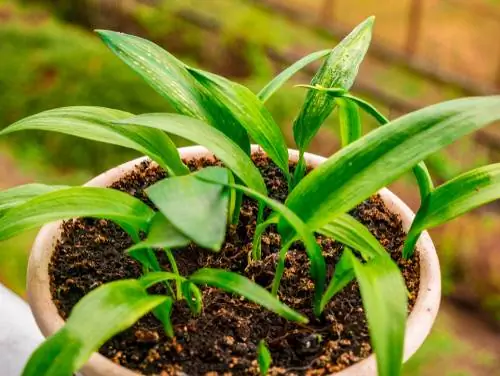
Which wild herbs are suitable for the balcony?
Wild herbs for the balcony can be, for example, daisies, red clover, yarrow, ribwort plantain and meadow bedstraw in sunny areas, or wild garlic, gourdweed, common ground ground, garlic mustard and chickweed in shady areas. They are easy to cultivate from seeds or young plants and are ideal for fresh harvest and daily use.
The benefits of “tamed” wild herbs
Word gets around that wild herbs are he althier than our cultivated plants. But not everyone always has the opportunity and time to regularly look for and collect them in the wild. Some people also feel unsure when determining the herbs and prefer to avoid them. Growing on the balcony could be worthwhile for all of them.
- your favorite herbs can be selected
- they are fresh and within reach
- so daily care is possible
- uncontrolled spread is not possible
- poisonous wild herbs are left out
Tip
Anyone who has a pet turtle knows that it likes wild herbs. Grow suitable wild herbs for turtle on the balcony so that it can snack on its favorite food every day.
Suitable wild herbs
Daisies, red clover, yarrow, ribwort plantain and meadow bedstraw prefer a sunny view. Wild garlic, gourd, Gundermann, garlic mustard and chickweed prefer to hide in the shade.
In addition, edible wild herbs are surprisingly adaptable. You can use normal garden soil for planting or sowing.
Get seeds or young plants
It's easy to get wild plants on the balcony. When collecting wild herbs, you can dig up young plants and replant them at home. It is important that you know your way around and do not accidentally take poisonous wild plants with you.
Wild herb seeds can also be collected in the wild. You can even find certain types in stores. For example, seeds for chickweed are available cheaply.
Tip
Take a look around at so-called wild herb nurseries. They have specialized in wild herbs and can certainly not only give seeds and seedlings, but also one or two tips on growing them.
Use of wild herbs
If the wild herbs thrive in a balcony box, they can be used fresh every day in your meals or smoothies during their growing season. But it doesn't have to stay that way alone.
You can benefit from its valuable ingredients even in winter. You can freeze unused quantities of wild plants. Fermenting wild herbs is now becoming increasingly popular.

